NOTE: I already did a post of the books published in 2017 that had the most profound effect on me. That post can be seen here. This one is about books I read in 2017, most of which weren’t published this year. The hyperlinks go to my GoodReads review of the respective book.
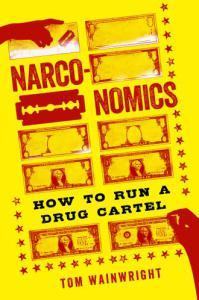
5.) Narconomics by Tom Wainwright: This is a look at how drug cartels have been drawing from the playbooks of successful multinational corporations to make their operations more efficient and profitable. It contains gripping journalism and–for an economics wonk such as myself–it hits the spot with regards to scholarly curiosity as well.
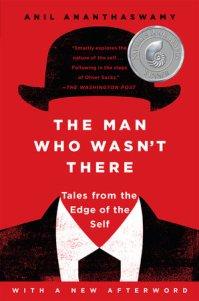
4.) The Man Who Wasn’t There by Anil Ananthaswamy: Neuroscience has been converging on a conclusion drawn by Buddhists long ago (though not necessarily sharing identical explanations /mechanisms) that the self is an illusion. Ananthaswamy considers the neuroscience of self by examining how nervous system ailments and injuries have challenged common explanations about what the self is based on what it feels to be a self. (e.g. Out-of-body experiences can be induced with electrodes. Some people deeply feel they are dead, or that they either have limbs that aren’t present or that limbs that are don’t belong to them.)
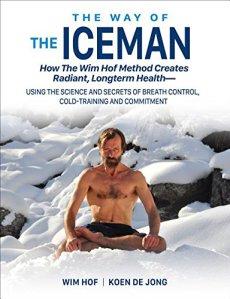
3.) The Way of the Iceman by Wim Hof and Koen De Jong: Any book that can get one to start taking cold showers has to be pretty persuasive. Wim Hof is known for his cold endurance “stunts,” but his argument in this book is that anyone can do it and that there are health benefits to doing so. The authors report on the science of said benefits as well as offering a program to start one’s way on such a program.
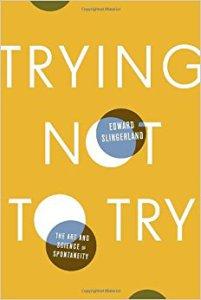
2.) Trying Not to Try by Edward Slingerland: Slingerland brings a fresh look at the ancient Chinese concept of wu-wei (apparently pronounced “ooo-way.”) Wu-wei is variously translated as “actionless action” or “to do without doing,” and–while that may sound like meaningless bumper-sticker wisdom–it reflects a state of effortless action that requires an elusive but powerful state of mind. Slingerland presents varied Taoist and Confucian approaches to the subject, but also relates the idea to modern ideas such as Mihaly Csikszentmihalyi’s “Flow.”
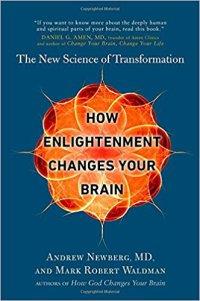
1.) How Enlightenment Changes Your Brain by Andrew Newberg and Mark Waldman: A neuroscientist and a positive psychologist team up to explain the common routes to the enlightened states of mind described in both Eastern religious / spiritual traditions and the mystic branches of Western religions (i.e. Jewish Kabbalah, mystic Christian sects, and Sufi Islam,) as well as their scientific underpinnings.
By B Gourley in Book Reviews, Books, Economics, nonfiction, Psychology, science on December 9, 2017.